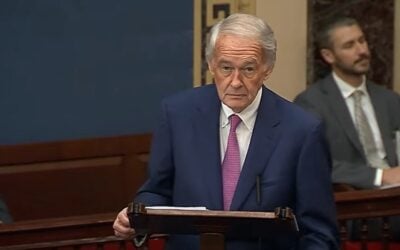An Ideal Power hybrid converter is put through its paces at the US National Renewable Energy Lab (NREL). Image: Ideal Power.
Inverter specialist KACO signs up Ideal Power's products and patented tech
29 July 2015: Solar inverter and power conversion system company KACO has partnered with power converter specialist Ideal Power to resell the latter’s products and use its patented technology.
Enjoy 12 months of exclusive analysis
- Regular insight and analysis of the industry’s biggest developments
- In-depth interviews with the industry’s leading figures
- Annual digital subscription to the PV Tech Power journal
- Discounts on Solar Media’s portfolio of events, in-person and virtual
KACO will be able to access the bi-directional power conversion systems Ideal Power has developed, including the patented Power Packet Switching Architecture (PPSA). According to Ideal Power, PPSA can reduce the need for hardware including isolation transformers. As well as reselling Ideal Power products under KACO branding, the inverter maker will be able to use PPSA in its own product range.
An Ideal Power spokesman told PV Tech Storage that PPSA can increase the round-trip efficiency of storage systems. PPSA uses a magnetic ‘hold and release’ system that stores energy magnetically, before being disconnected from the input. While disconnected from both inputs and outputs, the voltage and current in the device oscillate, releasing the power when voltage and output requirements match.
KACO is headquartered in Germany, with offices in Texas and a factory in Korea, supplying over 8GW of inverters since 1999. This year, Ideal Power has supplied to companies including EOS Energy Storage.
Electrovaya hails positive effects of Litarion acquisition
29 July 2015: The acquisition of lithium ion battery electrode and separator manufacturer Litarion has given an immediate boost to the financial position of its new owner Electrovaya.
Canadian lithium-ion battery maker Electrovaya said its revenues in the quarter ending 29 June 2015, which it disclosed on Wednesday, were at US$6 million, up 900% on the previous quarter when the figure stood at US$0.6 million.
Two months of activity from Litarion were included in the quarter’s reporting, with the deal closed near the end of April. Electrovaya played up the immediacy of the impact.
“Significant momentum has been created in both our sales pipeline and business integration activities.”
The company claimed that it now owns the largest lithium-ion battery manufacturing facility in Europe. Group CEO Dr Sankar Das said Electrovaya now had the “technology and manufacturing capacity to become the world leader in clean Lithium Ion energy storage solutions”.
Electrovaya has posted the latest figures, which include an improved EBITDA of US$-0.8 million for the quarter just ended, compared to US$-1.1 million in the previous one.
According to Mercom Capital Group, the deal, which had an undisclosed value, was the only major transaction to go through in mergers and acquisitions (M&A) for storage and batteries in the last quarter.
Townsville, Queensland, Australia. Image: Flickr user: Hector Garcia.
Australia's gas stations urged to 'accomodate technical change' of EV chargers
26 July 2015: Gas stations should “accommodate technical change to remain viable”, the head of a trade association for petroleum and convenience retailing in Australia has said, as part of western Australia committed to building a network of EV fast-chargers.
An announcement was made on the weekend that the local government of Queensland in West Australia is seeking expressions of interest for plans to build a service station which will be stocked with petrol (gasoline) pumps as well as the fast-charge infrastructure.
Government-owned electricity distribution agency Ergon Energy and Economic Development Queensland will support the project, a Queensland government statement issued on the weekend said.
Mark McKenzie, CEO of Australasian Convenience and Petroleum Marketers Association, gave a statement in support of the plans.
"Petrol station businesses must accommodate technological change to remain viable. Our research shows that wages are one of the three biggest costs for a typical service station operator. By incorporating solar facilities into the design of service stations, annual business costs can be reduced."
Despite long-standing and clear animosity towards renewables from Australia’s prime minister Tony Abbott – who has pronounced that he believes coal to be “good for humanity”, national industry and regional authorities have continued to champion the cause, for economic as well as environmental reasons.






